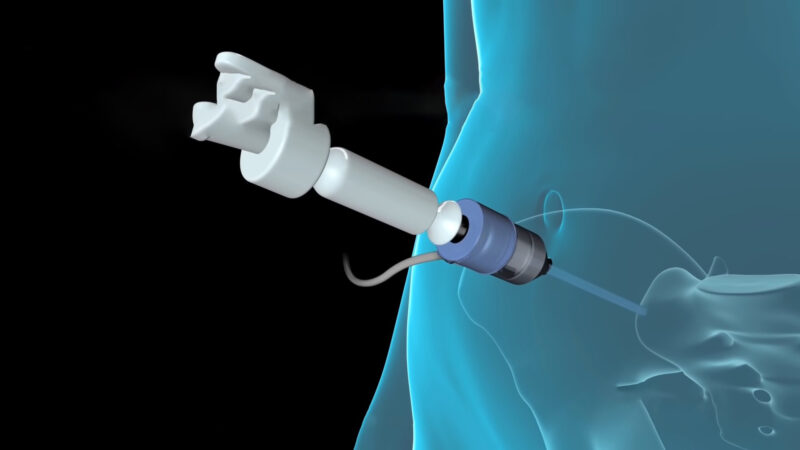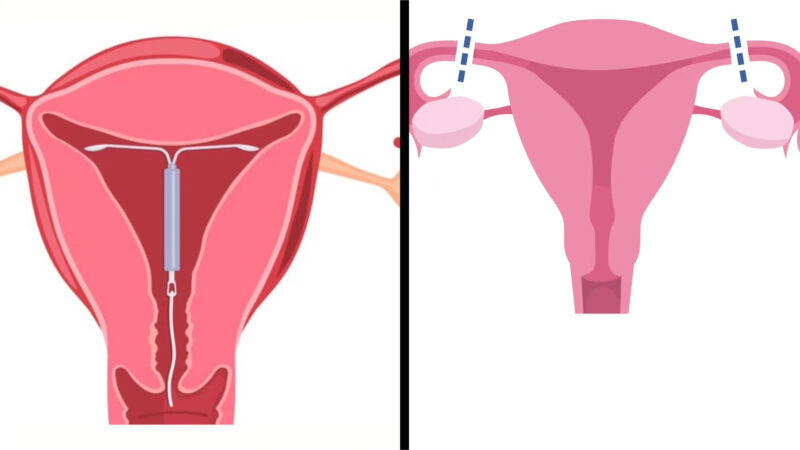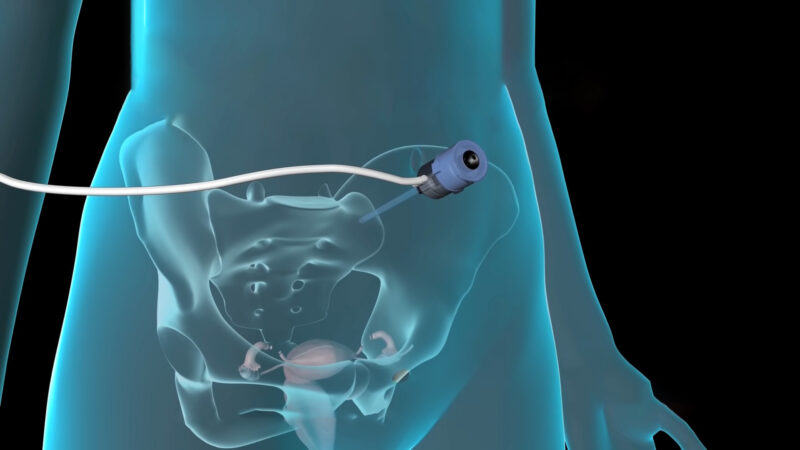For many women, the decision to undergo tubal ligation is a significant one, often influenced by various personal and medical reasons. However, life circumstances can change, leading some to reconsider their choices and explore the possibility of tubal ligation reversal.
Tubal ligation, commonly referred to as “having one’s tubes tied,” is a surgical procedure that prevents pregnancy by blocking or sealing the fallopian tubes. This procedure is considered permanent, but advances in medical technology have made its reversal possible.
A surgical procedure that aims to restore fertility by reconnecting the blocked segments of the fallopian tubes. This allows eggs to move down the tube and be available for fertilization again.
- Procedure Details: The surgery involves making a small incision near the bikini line, through which the surgeon accesses and repairs the fallopian tubes.
- Success Rates: The success of the procedure largely depends on the method used for the original tubal ligation and the remaining tubal length after reversal. On average, 50-80% of women can achieve pregnancy after the procedure.
Why Consider Reversal?

There are various reasons why women might want to reverse their tubal ligation:
- Change in Life Circumstances: A new relationship, the loss of a child, or simply a change of heart can influence the decision.
- Medical Reasons: Some women experience post-tubal ligation syndrome, which includes symptoms like menstrual irregularity and pelvic pain.
- Cost-Effectiveness: Compared to alternative fertility treatments like IVF, tubal ligation reversal can be more affordable in the long run.
Medicaid’s Stance
Medicaid, a joint federal and state program, provides health coverage to people with low income, including some low-income adults, children, pregnant women, elderly adults, and people with disabilities. But does it cover tubal ligation reversal?
Medicaid’s Coverage Policy
As mentioned earlier, Medicaid does not cover it. The primary reason is that the procedure is viewed as elective since the original decision to undergo tubal ligation was voluntary.
- Elective Procedures: Medicaid typically does not cover surgeries or treatments that are not deemed medically necessary. Since tubal ligation reversal is often pursued for personal reasons rather than medical necessity, it falls under the category of elective procedures.
- IVF and Medicaid: Similarly, in-vitro fertilization (IVF) is also considered elective for women who have had it. As a result, Medicaid does not cover IVF treatments for these women either.
Alternative Financing Options
While Medicaid might not cover the procedure, there are other ways to finance tubal ligation reversal:
- Payment Plans: Some clinics offer payment plans that allow patients to pay for the procedure in installments.
- Medical Loans: Various financial institutions provide loans specifically designed for medical procedures.
- Fundraising: Platforms like GoFundMe have been used by individuals to raise funds for medical treatments.
Comparing Tubal Ligation Reversal and IVF
When considering fertility restoration, women often compare tubal ligation reversal with IVF. Both have their pros and cons, but the cost is a significant factor in the decision-making process.
The Cost
As highlighted earlier, tubal reversal surgery with Dr. Morice is priced at $5,250. This fee is all-inclusive, covering pre- and post-operative care, anesthesia, and surgical suite fees. The use of advanced microsurgical techniques eliminates the need for an overnight hospital stay.
- One-Time Cost: Unlike other fertility treatments that may require multiple attempts, tubal ligation reversal is a one-time expense.
- Natural Conception: Post-surgery, women have the opportunity to conceive naturally, without the need for further medical intervention.
IVF: A Costly Alternative
In-vitro fertilization, while effective, can be considerably more expensive than tubal ligation reversal. On average, IVF treatments cost around $12,000 per attempt. Given that not every IVF cycle results in a successful pregnancy, the costs can quickly escalate.
- Multiple Cycles: Many women require multiple IVF cycles before achieving a successful pregnancy.
- Additional Costs: Medications, monitoring, and other supplementary treatments can add to the overall cost of IVF.
The Emotional and Psychological Aspects
While the financial implications of tubal ligation reversal are evident, it’s essential to consider the emotional and psychological aspects of the decision as well. The journey to restore fertility is not just a physical one; it’s deeply personal and can be emotionally taxing.
Emotional Considerations
Undergoing any medical procedure can be stressful, and tubal ligation reversal is no exception. Women often grapple with a range of emotions:
- Hope and Anticipation: The possibility of conceiving again brings a renewed sense of hope.
- Anxiety and Fear: Concerns about the procedure’s success and potential complications can be overwhelming.
- Guilt and Regret: Some women may feel guilty or regret their initial decision to undergo tubal ligation.
Psychological Support
Given the emotional rollercoaster that can accompany the decision to reverse a tubal ligation, seeking psychological support is crucial.
- Counseling: Professional counseling can provide a safe space to discuss fears, anxieties, and hopes related to the procedure.
- Support Groups: Connecting with other women who have undergone or are considering the procedure can offer invaluable peer support.
The Medical Perspective: Risks and Benefits

Like all surgeries, it comes with its set of risks and benefits. It’s essential to be well-informed about both to make an educated decision.
Potential Risks
Every surgical procedure has inherent risks, and while tubal ligation reversal is generally safe, potential complications include:
- Infection: As with any surgery, there’s a risk of infection at the incision site.
- Bleeding: Some women might experience bleeding post-surgery.
- Ectopic Pregnancy: There’s a slightly increased risk of ectopic pregnancy after the procedure.
Benefits of the Procedure
Despite the risks, many women find the potential benefits of tubal ligation reversal to outweigh the drawbacks:
- Restored Fertility: The primary benefit is the restoration of fertility, allowing women the chance to conceive naturally.
- One-Time Procedure: Unlike IVF, which might require multiple cycles, a one-time surgery.
- Physical Relief: Some women report relief from symptoms of post-tubal ligation syndrome after the reversal.
Making the Decision: Personal Stories
Hearing from women who have undergone tubal ligation reversal can provide valuable insights and perspectives. Their stories highlight the challenges, joys, and realities of the procedure.
Sarah’s Journey
Sarah, a 32-year-old mother of two, had her tubes tied after her second child. A change in her life circumstances led her to consider reversal. “The decision wasn’t easy,” she shares. “But the joy of holding my third child conceived naturally after the reversal made it all worth it.”
Mia’s Experience
Mia underwent tubal ligation in her late twenties, convinced she didn’t want more children. A decade later, she felt differently. “The reversal procedure was smooth, and the recovery was quicker than I anticipated,” Mia recalls. “While I’m still on my journey to conceive, I’m hopeful and grateful for the second chance.”
Frequently Asked Questions (FAQ)
How long is the recovery period after tubal ligation reversal?
The recovery period can vary, but most women can return to their regular activities within 1-2 weeks. However, it’s essential to avoid strenuous activities for at least 4-6 weeks.
How soon can I try to conceive after the procedure?
It’s generally recommended to wait at least one menstrual cycle before trying to conceive. This allows the body to heal and increases the chances of a successful pregnancy.
Are there age restrictions for tubal ligation reversal?
While there’s no strict age limit, the procedure’s success rate tends to decrease as a woman gets older, especially after the age of 40.
Can the procedure be done laparoscopically?
Yes, some surgeons offer laparoscopic tubal ligation reversal, which involves smaller incisions and may have a shorter recovery time.
What are the chances of having twins or multiples after the procedure?
The chances of having twins or multiples are the same as the general population unless one opts for fertility treatments like IVF.
Will the procedure affect my menstrual cycle?
Most women find that their menstrual cycles return to their usual pattern after the procedure. However, any changes or irregularities should be discussed with a healthcare provider.
Can I undergo the procedure if I had my tubes burned or cauterized?
It depends on the amount of healthy fallopian tubes remaining. A consultation with a specialist can provide a clearer picture of the potential success rate.
Final Words
The journey of exploring tubal ligation reversal is filled with hope, questions, and decisions. While the financial and medical aspects are crucial, it’s equally important to consider the emotional and psychological facets.
Every woman’s journey is unique, and the choice to reverse a tubal ligation is deeply personal. Armed with knowledge, support, and understanding, women can make informed decisions that align with their desires and life circumstances.
